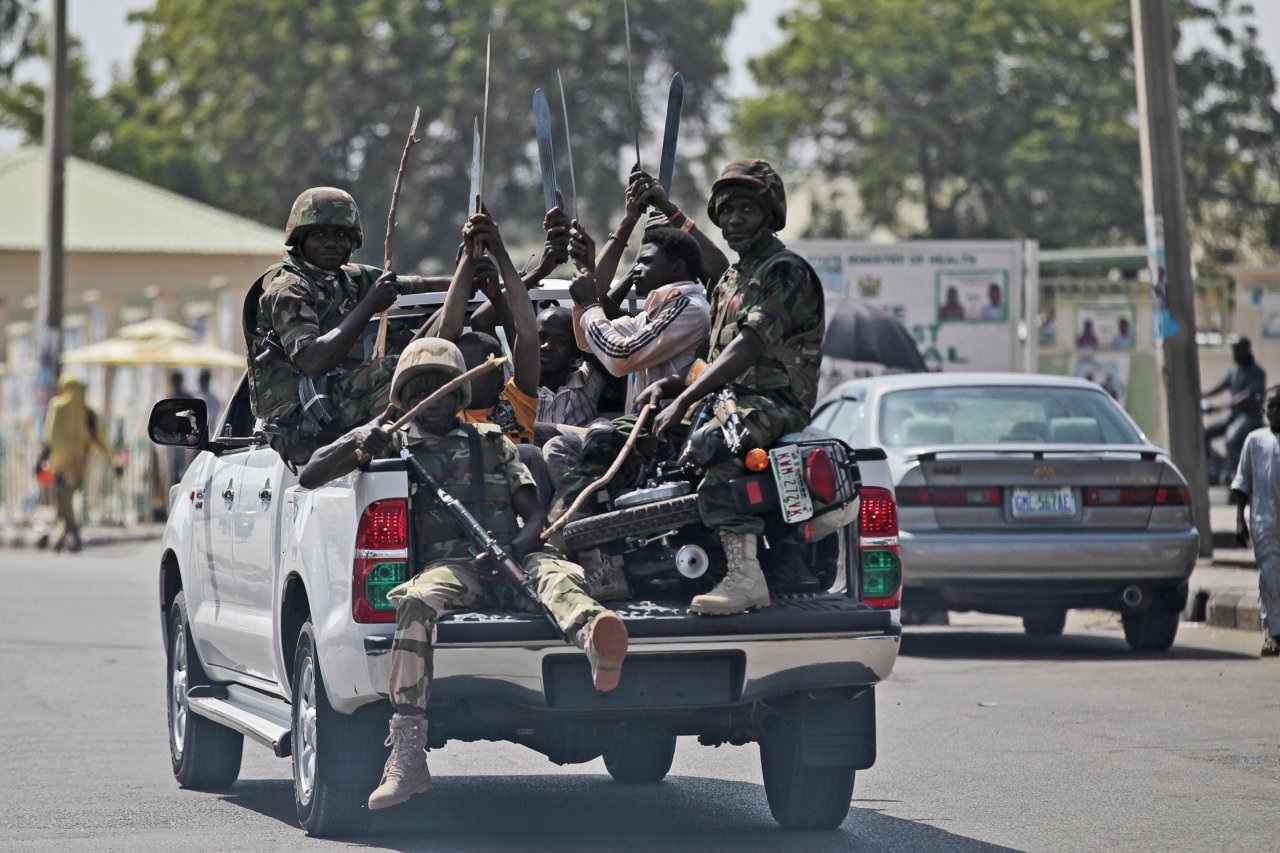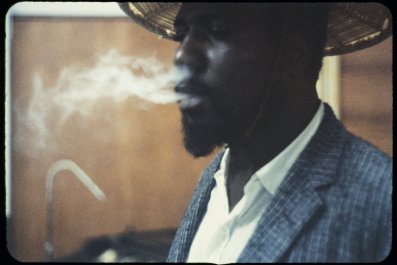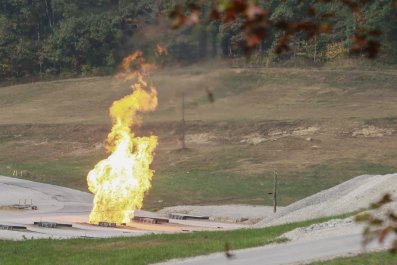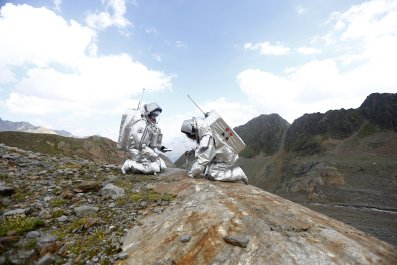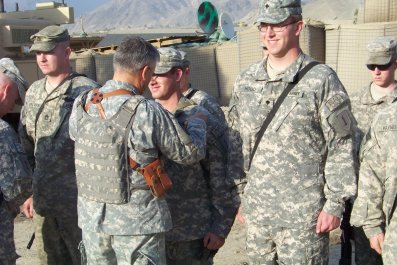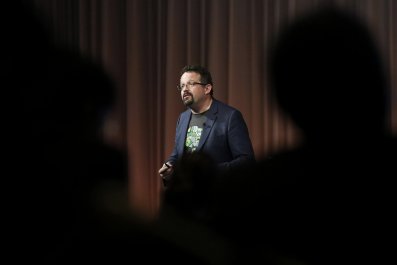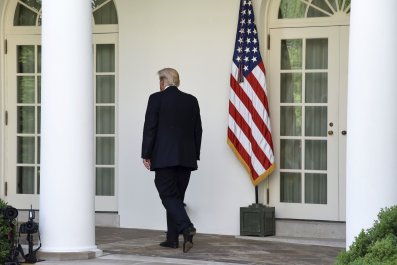Earlier this year, Nigerian Lieutenant Colonel T.J. Abdallah found himself under investigation by senior military officials. His offense: He criticized them on a WhatsApp messaging group. Describing them as "Nollywood actors" (Nigeria's version of Hollywood), Abdallah said they had failed to provide his men with the weapons and equipment they needed to fight Boko Haram, the militant group that has waged an armed insurgency in Nigeria since 2009.
But if the colonel's criticisms are right, his men's scarce resources are not for lack of military spending. The Nigerian government has been increasing defense spending for years in its effort to stamp out Boko Haram. In May, the country's Senate passed a record $24.45 billion federal budget that, once the executive approves it, will allocate $440 million for the Ministry of Defense . Yet for Nigerians in the country's troubled northeast, where Boko Haram is most active, the planned cash injection may not bring the resources they need. A culture of corruption in Nigeria, says anti-corruption organization Transparency International, has prevented much of that money from reaching the troops.
In a report published May 18, Transparency International found that "corrupt elites" have stolen billions of dollars over the past seven years through inflated or fake military contracts. The embezzlers, the organization says, launder the money out of the country and "often [hide it] in property in the U.K., United States, South Africa and Dubai."
As that money pours out of Nigeria, some military personnel say the lack of arms is putting the country's soldiers in danger. Although Boko Haram fights on a small annual budget of around $10 million, according to a 2015 estimate from Hassan Baage, deputy director of the U.N. Security Council's Counter-Terrorism Committee, it is reportedly better armed than the Nigerian military. Nigerian soldiers have told journalists they have faced Boko Haram militants when armed only with AK-47s, while Boko Haram's arsenal includes "rocket-propelled grenades, machine guns with anti-aircraft visors, automatic rifles, grenades and explosives," according to a 2012 U.N. report.
Though Boko Haram has lost strength, it is far from defeated. On May 15, three of the group's female suicide bombers blew themselves up in the northeast state of Borno, killing two people in addition to the attackers. Those deaths add to the group's increasing toll, now around 20,000 victims. The militants' actions have displaced a further 2 million people throughout Nigeria and across neighboring countries.
Corruption in defense spending is not new in Nigeria. In 2015, when the country's current president, Muhammadu Buhari, took office, he launched an anti-corruption campaign throughout the government. As part of this, Vice President Yemi Osinbajo found that $15 billion had been embezzled from the state through fraudulent arms deals under former President Goodluck Jonathan. His comments came five months after police arrested Sambo Dasuki, Nigeria's former national security adviser, who is accused of stealing $2 billion through fraudulent arms deals. (Dasuki remains in detention.)
But despite Buhari's efforts, criticism from people like Abdallah suggests that corrupt officials are still siphoning money from the Nigerian military. One factor driving this, according to Transparency International, is the secrecy surrounding Nigeria's defense budget relative to other countries. "In any country, a proportion of spending must remain confidential for security reasons; typically 15 percent, including among states in conflict," the organization's report says. "Yet Nigeria classifies nearly all defense contracts and budgets and considers any broadly defined security-related matter 'secret' by definition."
This secrecy, which prevents journalists and civil society organizations from scrutinizing military spending, is a hangover from when Nigeria was under military rule. From 1983 to 1999, a powerful regime prevented civilian oversight of the armed forces. Though Buhari has set up two committees to investigate past defense deals, the military remains secretive about its spending. According to Transparency International, officials have given members of Buhari's party the option to pay fines to avoid fraud charges in relation to defense spending. Nigeria's international allies, the organization notes, continue to give money to Nigeria, despite a lack of transparency about how the government spends it.
In February, a U.K. parliamentary briefing paper on Nigeria offered a scathing assessment: "In May 2016, not long after the former Prime Minister David Cameron had described the country as 'fantastically corrupt,' the British government said it was giving Nigeria £40 million [$52 million] over the next four years to help in the fight against Boko Haram."
It is not clear whether that money was misappropriated, but despite Buhari's efforts, it appears defense spending is still slipping out of his military's control—and into the pockets of corrupt elites.



